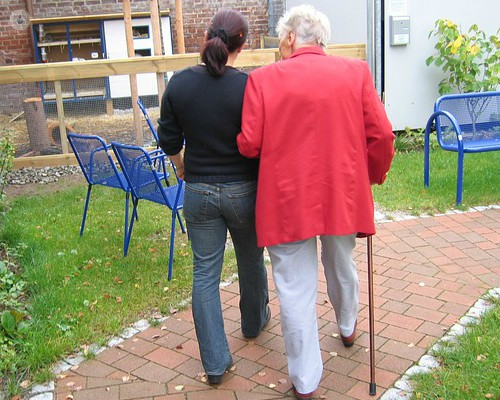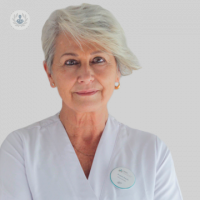It is estimated that over 36 million people affected in Alzheimer's World
Written by:In the following article, Dr.. Bayes Rusiñol explains Alzheimer's disease, its causes and the differences with memory loss.

What is Alzheimer's disease?
Alzheimer's is a progressive brain disease that generally affects people over 60 years. It is estimated that there are more than 36 million affected in the world. The first symptoms are usually mild memory problems that gradually worsen. Sometimes, a loss of smell may appear as an initial symptom.. As the disease progresses, the damage often involves other brain functions such as language or reasoning. In more advanced stages of Alzheimer's, brain damage is so widespread that it can prevent a person from being able to carry out the simplest tasks.
What causes cause it?
The disease develops due to a series of events that occur in the brain over a long period of time that are not yet fully understood. The cause is thought to be complex and depends on both genetic, environmental and lifestyle factors. Some publications support that suffering intense and prolonged stress would have a negative effect on the brain and could cause the first symptoms to appear earlier.
We know that there is still no definitive formula for its cure, but can it help to prevent a rapid development of the disease?
Alzheimer's is a complex disease and there is currently no cure. But there are several treatments that can help people maintain their brain function, manage symptoms related to behavior, and slow down, delay or prevent the disease, for this reason it is important to make an early diagnosis and medical follow-up with a neurologist..
It is known for example that lifestyle can modify the course of the disease and delay the onset of its symptoms. There is evidence that practicing physical exercise on a regular basis, eating a Mediterranean diet or doing leisure activities that involve stimulating challenges are protective factors for the development of Alzheimer's.
In relation to the effect of stress, there is growing evidence that certain meditation practices such as mindfulness could help the brain to function better.
What are the differences between memory loss due to age and Alzheimer's symptoms?
With the passage of time our body ages and our brain is no exception. There are morphological and neuroanatomical changes that make some of our memory systems not work as efficiently as we get older, but this is not a disease. In the case of the first symptoms of Alzheimer's, the memory difficulties will always be greater than the usual ones of the age. Signs of possible development a disease can be for example: forgetting things much more often than usual, forgetting how to do well-known activities, having many difficulties to learn new things, repeating phrases in conversations or asking several times the same. Difficulty to know what day we are, or disorientation in known places, etc.. That is, when there is a change in our memory that makes us start committing frequent small failures in our daily lives that we did not commit before.
If you are worried about the functioning of your memory go to a neurologist. Currently there are techniques to evaluate the functioning of different memory systems that allow us to establish if their functioning is within normal or suffer some alteration compared with subjects of the same age.
What changes does it cause in the behavior of the person who suffers it?
Alzheimer's disease frequently causes some behavioral changes and behavioral disorders such as apathy, depression, irritability or agitation.. However, it should be noted that the disease affects each person differently and that therefore not all patients suffer the same symptomatology.


